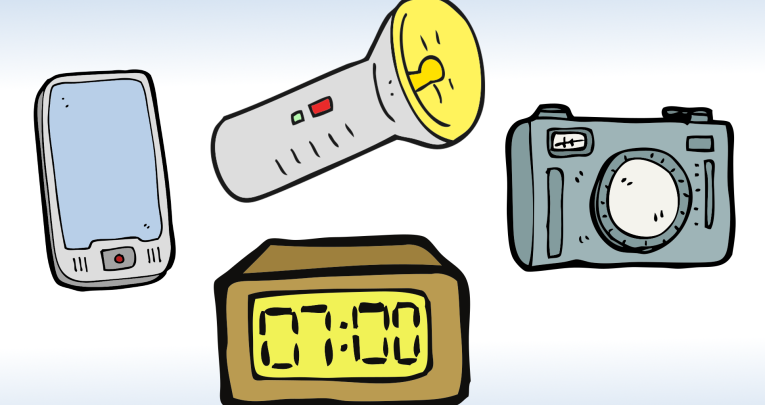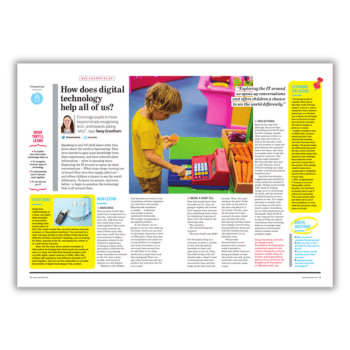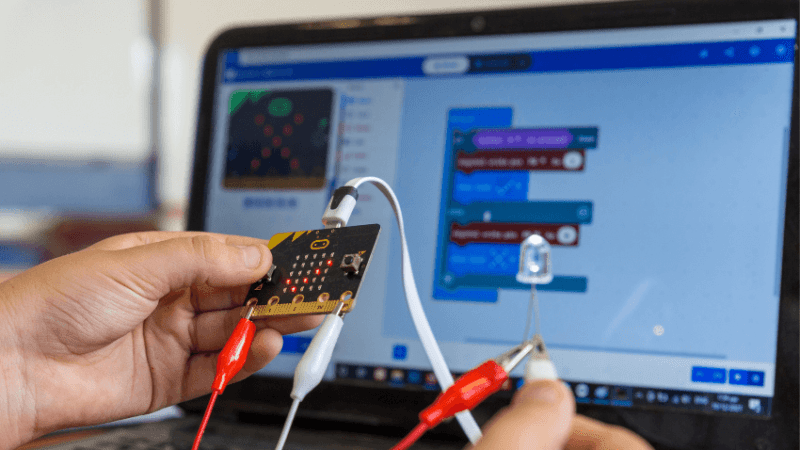4 Ways to do More with ICT in Early Years

With smart devices and software you can help children express their creativity in a host of exciting ways, says Kirstine Beeley…

- by Kirstine Beeley
- Early years training consultant with 20 years of experience Visit website

1 | Cause and effect
Using ICT While most children are able to tick the Early Learning Goal for Technology much earlier than age five, it is important to help them to build awareness of how technology affects everyday life.
What to try Giving children access to everyday gadgets and gizmos demonstrates to them, through exploration and play, that by switching, winding up, turning or clicking they are able to make something happen.
In this way children are building their early understanding of cause and effect (how what they do causes something to happen). There are load of bits and bobs that can be added cheaply to any setting to encourage fun and exploration.
Try adding torches that allow you to flick a switch, push buttons, squeeze or even wind up.
Get started A selection of wind-up toys, electrical toys that make lights and sounds, voice recorders, remote control toys and pretty much anything else that looks exciting and uses batteries is a great way to begin!
2 | QR coding
Simple scanning QR codes are the little printed black-and-white boxes, made up of patterns of squares, you find on advertisements and product packaging.
For settings with access to tablets and/or smartphone devices, they have endless possibilities for recording learning.
What to try Download a QR code generator app suitable for your device (these are usually free and easy to follow). You will also need an account with an online storage facility such as Dropbox.
Now, simply store a selection of photos, pictures or words into a folder on your storage account, then follow the directions on the QR code generator to link it with these pictures, etc.
This will generate a new code for you, which can be printed out and laminated for use around the setting.
Get started Download a QR code reader for your device – then watch as children use the reader to zap your codes around the setting, to find your pictures, words or even parts of a treasure hunt!
3 | Picture this
Start snapping We’re great at using phones, tablets and other digital cameras to record learning as we see it unfold in front of us.
Trending
By giving children access to these devices, we can help build their creativity, language and storytelling alongside their IT skills.
What to try Encourage children to photograph their own creations in block play, outdoors or creation stations.
When they’re confident recording their own learning, move on to recording their ideas as they play.
Downloading a basic ‘stop animation’ app to your device will give you and the children the opportunity to capture their small world play stories at intervals as they tell them, then play them back all together, just like a real film.
Even very young children can become film producers with a bit of support!
Get started Before you begin, make sure you have a space set aside to display children’s photographs, as these images give us a unique insight into children’s view of what’s important in our settings.
4 | Real-life tech
Let children role play with devices they see in use at home…
As well as allowing your children to play with switches and buttons on toys and different types of equipment, it is important that you give them the chance to revisit and play with the many technological devices that surround them in their everyday lives.
Adding, for example, real mobile phones, television remote controls, computer keyboards, calculators, card readers, watches, digital clocks, radios and CD and MP3 players to their role play gives them the opportunity to build their confidence in using these as part of their ongoing imaginative play.
Children do, after all, learn best with what they know!
Kirstine Beeley is an author and educational consultant.










